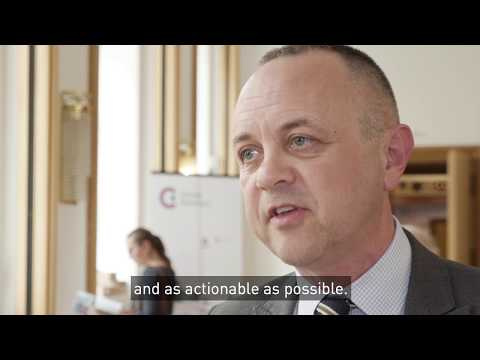Reducing violence and achieving SDG 16 through diplomacy – Interview with David Steven, NYU
Addressing the Sustainable Development Goal 16 – on Peace, Justice and Strong Institutions – may feel like an uphill battle, as, globally, violence continuously escalates.
"Through the SDGs the world promised to significantly reduce all forms of violence everywhere – so conflict violence, violence against women, violence against children, criminal violence. But we're seeing adverse trends on many forms of violence and unless we get serious about violence, we have no hopes of delivering the SDGs.
Foreign policy has a critical role to play. We've traditionally seen the MDGs as a development agenda, but the SDGs are much more political. They rely on very different relationships between countries. There's a role for rich countries, for middle income countries, for poor countries, so we really need diplomats to be the operating system to wire together countries to be effective.
The ‘Pathfinders for Peaceful, Just and Inclusive Societies’ is a group of member states and other partners who've come together to try and get serious about the implementation of the SDG targets for peace, justice and inclusion. They want to demonstrate that change is possible; that we can reduce violence, that we can increase justice, that we can build more inclusive societies in very practical ways and their hope is that if they can show that it can be done, then other countries will follow their example.
The thing about the SDG16’s targets is that the problems look very daunting. So if we talk too much about the problems it breeds a sense of fatalism. So are our objective has always been to talk about solutions, to talk about the evidence of what works and to try and make it as practical and as actionable as possible.
What we see in this new volume about how the SDGs and foreign policy can come together is a really interesting collection of new ideas. We see a strong focus on climate. We see a strong focus on fragile states or the countries that are most at risk of being are being left behind. We see a real challenge for diplomats to think about how they can work in very different ways, not just narrow bilateral relations, but really thinking about some of these big global issues and how they can help solve them."










